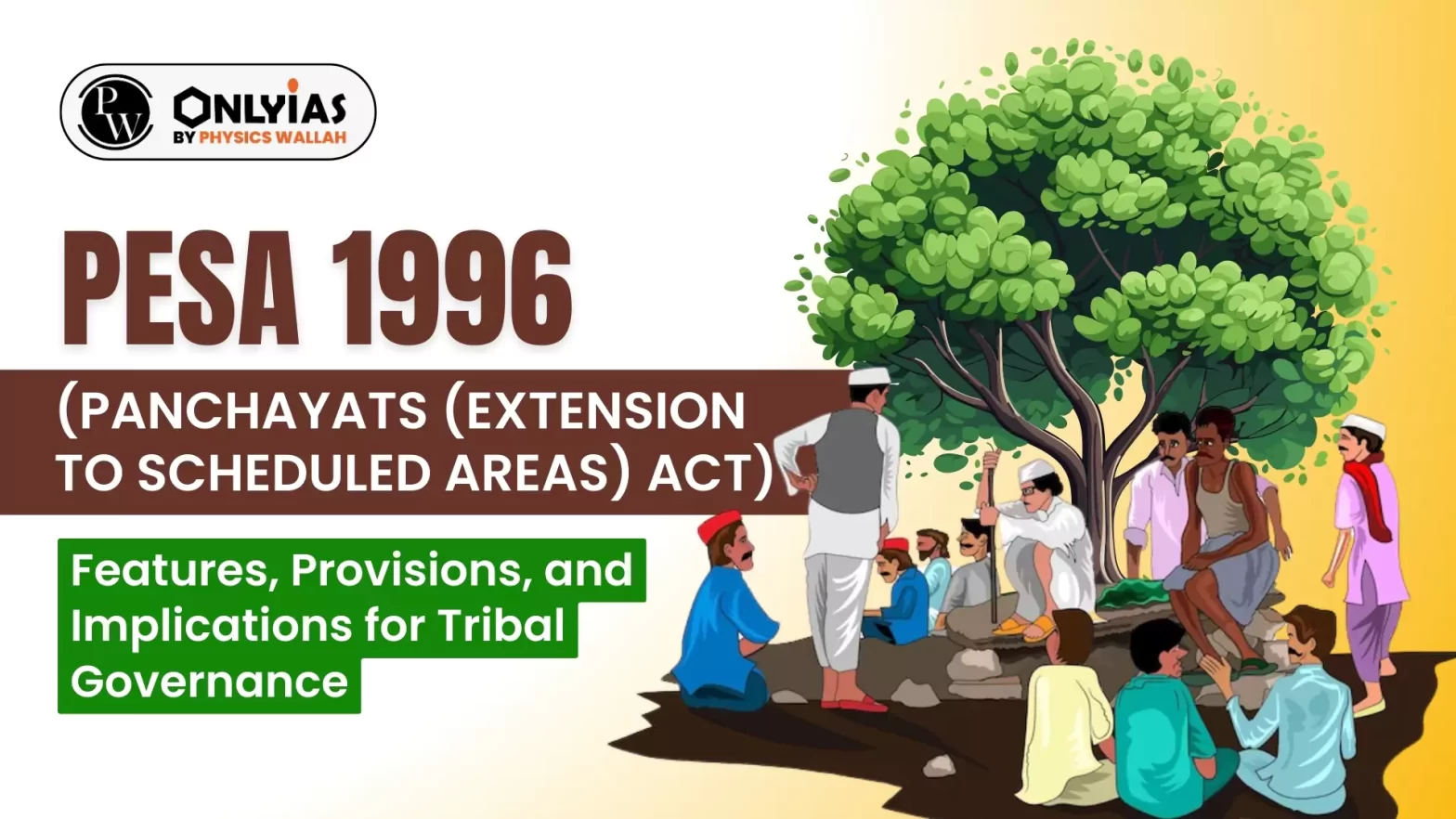![]() 4 Mar 2024
4 Mar 2024
English
हिन्दी

This Article is based on the news “Strengthening of Panchayats (Extension to Scheduled Areas) Act” which was published in the Down to Earth. Two-Day Regional Conference on the Strengthening of Panchayats (Extension to Scheduled Areas) Act took Place in Ranchi, Jharkhand.
What are Scheduled Areas?
|
|---|
Fifth and Sixth Schedules:
|
|---|
| Must Read | |
| NCERT Notes For UPSC | UPSC Daily Current Affairs |
| UPSC Blogs | UPSC Daily Editorials |
| Daily Current Affairs Quiz | Daily Main Answer Writing |
| UPSC Mains Previous Year Papers | UPSC Test Series 2024 |
<div class="new-fform">
</div>